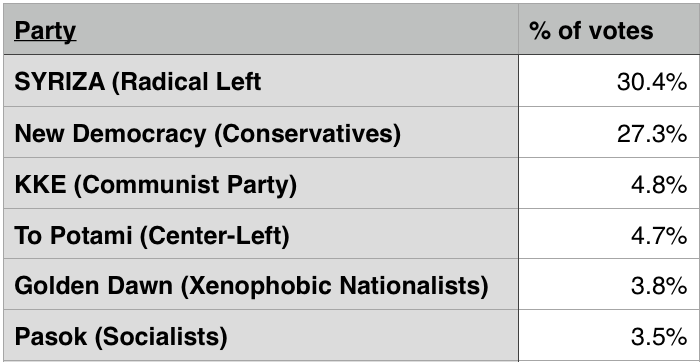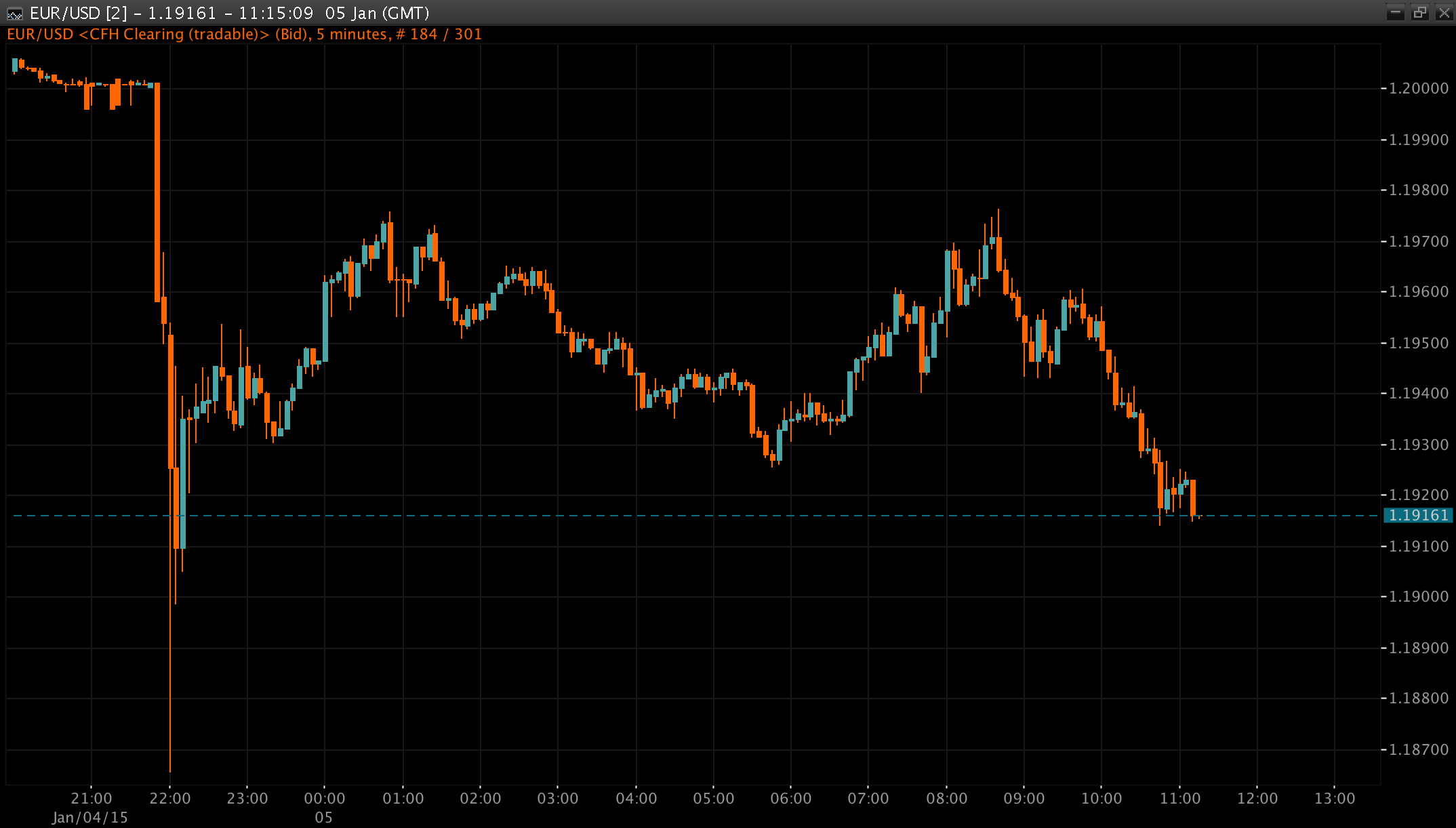Early Monday morning trading has marked the first important event for the Forex market in 2015. The euro has hit a nine-year low after some German government officials’ comments were reported on this weekend by local Der Spiegel news magazine.
According to sources cited in the article, the German government holds the view that an exit of Greece from the euro zone will be manageable.
While German government officials clarified that they do not currently hold the view that Greece will leave the euro zone, Chancellor Angela Merkel and Finance Minister Wolfgang Schaeuble were reported to believe the euro zone has implemented enough reforms since the height of the Euro crisis in 2012 to let a Grexit happen.
Commitments made by other countries facing funding troubles since the height of the crisis are enough to maintain confidence. We cannot disagree with this notion; As long as the political will for reforms is maintained, spillover effects to other countries should be limited, especially with the European Central Bank (ECB) expected to launch some form of quantitative easing soon.
Additional brakes provided by the European Stability Mechanism (ESM), which is the euro zone's war chest committed to tackling sovereign debt issues, are still in place and have the ability to raise resources.
On that note, this might be the vehicle of choice for the European Central Bank to conduct quantitative easing later this year, since it is forbidden from directly financing government expenditures.
Greece Would be the Biggest Loser from a Grexit
A new poll conducted after it became known that there will be snap elections in Greece shows that former opposition party SYRIZA which is demanding an end to austerity is leading conservatives from New Democracy by 3.1 points. While the lead has narrowed, the main question is how can a government be formed.

The survey was conducted between December 29th to the 30th for the Sunday edition of Greek newspaper Eleftheros Typos. It shows SYRIZA at 30.4 percent against 27.3 percent for New Democracy led by former Prime Minister Antonis Samaras.
Ultra-leftist party KKE, which is a communist party, was third with 4.8 percent, followed by the center-left To Potami with 4.7 percent, and the far-right nationalists from Golden Dawn with 3.8 percent.
Former coalition partner of New Democracy has slipped to fifth place, as the Socialist party Pasok is reportedly getting just 3.5 percent.
The electoral system used in Greece is partially proportional. The winning party gets a 50 seat majority bonus - this would mean that in the event of a win by SYRIZA it could look left for two other partners, while New Democracy’s only choice remains Pasok, which was third in the last parliamentary elections.
Worst of all, five years of austerity will have been in vain if the would-be government led by Syriza should choose to abide by its platform after the election - to part with fiscal conservatism and to miraculously create 300,000 new jobs.
France, Germany and Other Euro Zone Leaders Likely to Have Consensus
In a Monday interview with French radio, French President Francois Hollande said, “The Greeks are free to choose their own destiny. But, having said that, there are certain engagements that have been made and all those must be of course respected.”
Back in 2012, when the last parliamentary vote was held in Greece, German Finance Minister Wolfgang Schaeuble stated that the vote was essentially a referendum on Greece staying in the euro zone.

Euro tanks at the open to the US dollar, Source: NetDania
Meanwhile the single European currency marked 1.1857 in early Asian trading. The last time we have seen such levels for the euro was all the way back in 2006, when the Federal Reserve was ahead of the ECB in raising interest rates higher.
While the Grexit is not yet certain, the event could actually surprise the markets by driving the euro higher after it happens. Just like the time when Lehman Brothers collapsed and led to a big US dollar rally, repatriation flows by major banks into the euro zone could support the single European currency in the short run.
Implications for the Forex Industry
As to the forex industry, these events should only spell good news - Volatility will continue to be high in light of the possibility of not one but two Greek elections (in 2012 it took two votes to form a majority government).
The interest in trading the most liquid currency pair as it is hitting long forgotten levels way below 1.20 is likely to underpin broad foreign exchange market volatility and maybe even lead to new record-high trading volumes in 2015.
The European Union could be presented with a great opportunity to make an example of what happens when austerity measures are not followed and let Greece save itself on its own with its own currency.
This example is, in turn, likely to prevent the rise of populist parties in other sovereign debt crisis hotspots, such as Cyprus for example. A stable government is crucial for ongoing structural reforms, and recent progress made by Cyprus on the fiscal front is likely to persist even in the event of a Grexit.


















